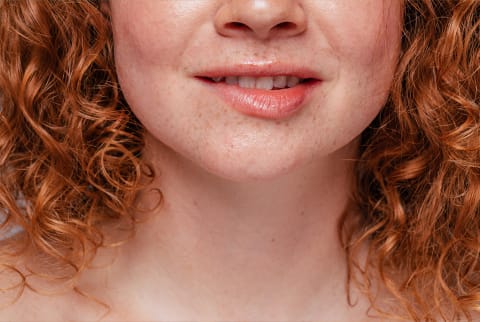Advertisement
How Alcohol Impacts The Oral Microbiome (And Why You Should Care)


Your oral care routine is about much more than just keeping your teeth shiny and white. An imbalance in your oral microbiome can lead to tooth decay, gum disease, bad breath, and other unpleasant side effects.
Of course, brushing and flossing are a must, but the food and drinks you consume can impact your oral microbiome too—some more than others. Research suggests that one kind of beverage may have a particularly negative impact on the oral microbiome.
Here's what it is and what dentists have to say about it.
How alcohol impacts the oral microbiome
A new study published in the Journal of Nutrition states that alcohol consumption was associated with changes in the diversity and composition of the subgingival microbiome—meaning boozy beverages directly affect your oral microbiome.
By analyzing a combination of self-reported alcohol consumption and subgingival (below the gum line) plaque samples, researchers found that out of the 1,179 postmenopausal women included in the study, those who drank more than seven alcoholic drinks each week had the most significant changes to their oral microbiome.
"The harmful bacteria promoted by excessive alcohol intake can cause inflammation and damage to the gums, leading to gum disease," dentist Daniel Rubinshtein, DDS, says of this finding.
He continues, "Excessive alcohol consumption can also lead to dry mouth (a lack of saliva) and creates an environment for the bad bacteria to thrive," which may contribute to bad breath and increased gum sensitivity.
More research is needed to confirm these findings in other populations and pinpoint the long-term impacts of these changes in the oral microbiome. However, these aren't the only concerns when it comes to alcohol and oral care—the effects go beyond just gum health.
"The acids found in alcoholic beverages, particularly sugary mixed drinks or those high in citrus, can erode the tooth enamel over time and cause them to turn gray or even translucent in color," Rubinshtein explains.
What's more, chronic and excessive alcohol consumption, especially when combined with other risk factors like smoking, can increase the risk of developing oral cancer1, he states.
What to do about it
Now, these findings don't suggest that you should never drink alcohol again but rather be mindful of your alcohol intake (which will benefit your overall health too).
And if your teeth are sensitive or discolored, consider skipping the sugary and citrus-packed alcoholic beverages.
You can even take steps to protect your teeth and gums while drinking, Rubinshtein says. Most importantly, hydrate after consuming alcohol, rinse your teeth with water, and wait to brush your teeth until you've completed those steps. This will help to flush alcohol off the surface areas of your teeth and gums and rehydrate the teeth before they meet your toothbrush.
On that note, make sure to complete your full oral care routine after drinking—including flossing—he says.
Beyond that, make sure to visit your dentist regularly and talk openly about your alcohol consumption so they can help you create the best at-home care plan possible.
The takeaway
A balanced oral microbiome is key to optimized tooth and gum health. Excessive alcohol consumption does have an impact on the diversity of your oral microbiome, so limiting your intake is a good idea for both oral and overall health.